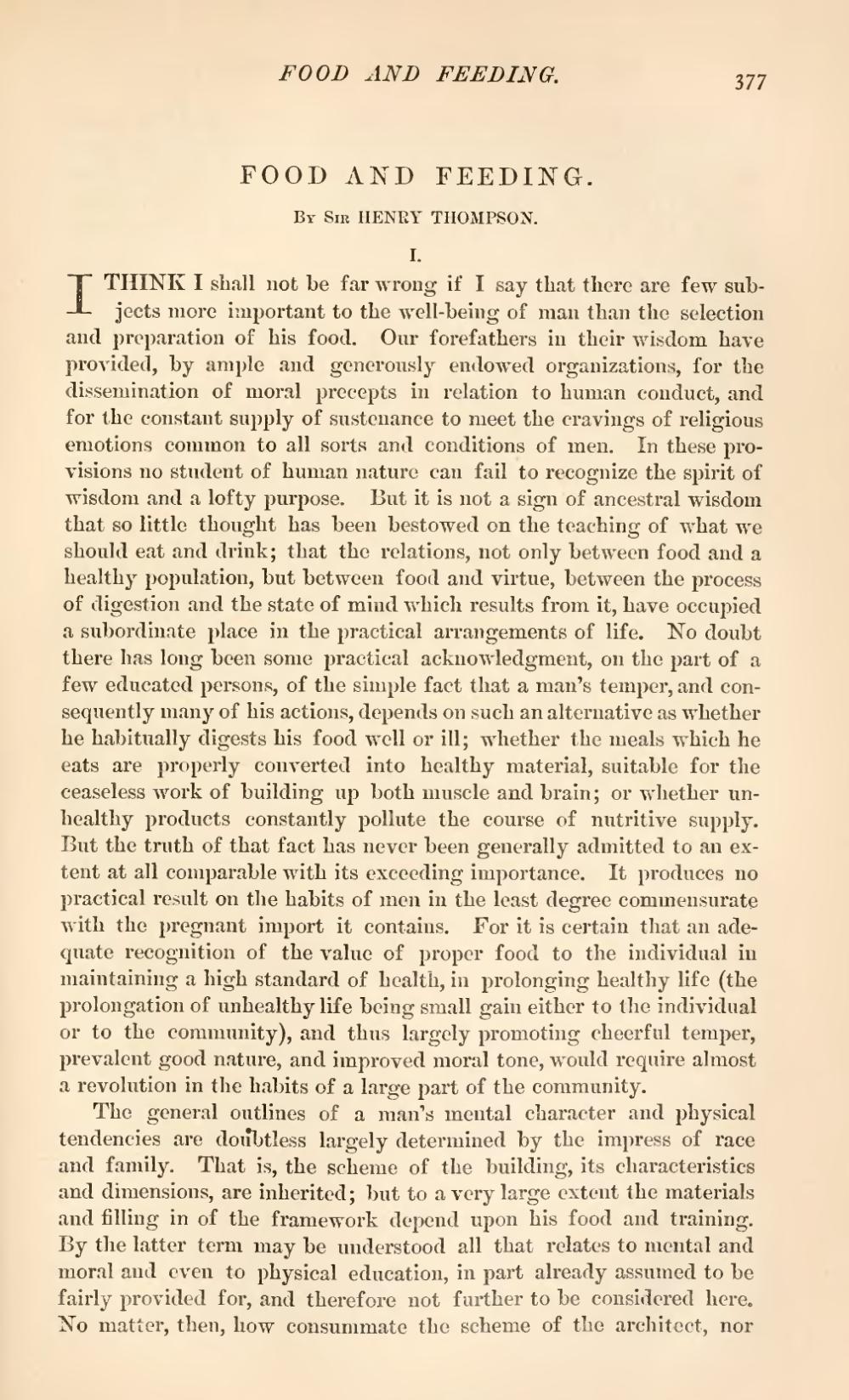| FOOD AND FEEDING. |
By Sir HENRY THOMPSON.
I.
I THINK I shall not be far wrong if I say that there are few subjects more important to the well-being of man than the selection and preparation of his food. Our forefathers in their wisdom have provided, by ample and generously endowed organizations, for the dissemination of moral precepts in relation to human conduct, and for the constant supply of sustenance to meet the cravings of religious emotions common to all sorts and conditions of men. In these provisions no student of human nature can fail to recognize the spirit of wisdom and a lofty purpose. But it is not a sign of ancestral wisdom that so little thought has been bestowed on the teaching of what we should eat and drink; that the relations, not only between food and a healthy population, but between food and virtue, between the process of digestion and the state of mind which results from it, have occupied a subordinate place in the practical arrangements of life. No doubt there has long been some practical acknowledgment, on the part of a few educated persons, of the simple fact that a man's temper, and consequently many of his actions, depends on such an alternative as whether he habitually digests his food well or ill; whether the meals which he eats are properly converted into healthy material, suitable for the ceaseless work of building up both muscle and brain; or whether unhealthy products constantly pollute the course of nutritive supply. But the truth of that fact has never been generally admitted to an extent at all comparable with its exceeding importance. It produces no practical result on the habits of men in the least degree commensurate with the pregnant import it contains. For it is certain that an adequate recognition of the value of proper food to the individual in maintaining a high standard of health, in prolonging healthy life (the prolongation of unhealthy life being small gain either to the individual or to the community), and thus largely promoting cheerful tender, prevalent good nature, and improved moral tone, would require almost a revolution in the habits of a large part of the community.
The general outlines of a man's mental character and physical tendencies are doubtless largely determined by the impress of race and family. That is, the scheme of the building, its characteristics and dimensions, are inherited; but to a very large extent the materials and filling in of the framework depend upon his food and training. By the latter term may be understood all that relates to mental and moral and even to physical education, in part already assumed to be fairly provided for, and therefore not further to be considered here. No matter, then, how consummate the scheme of the architect, nor
